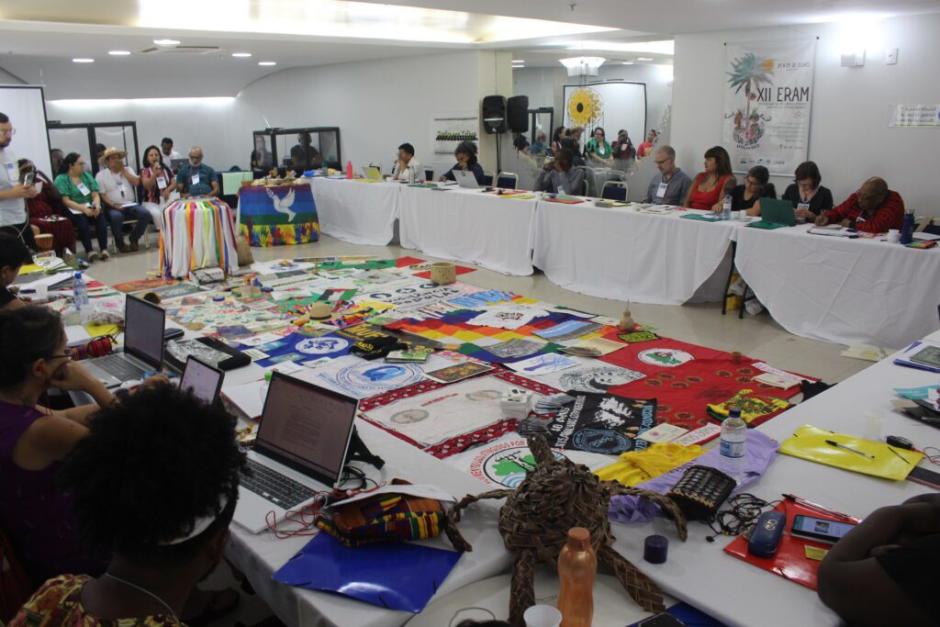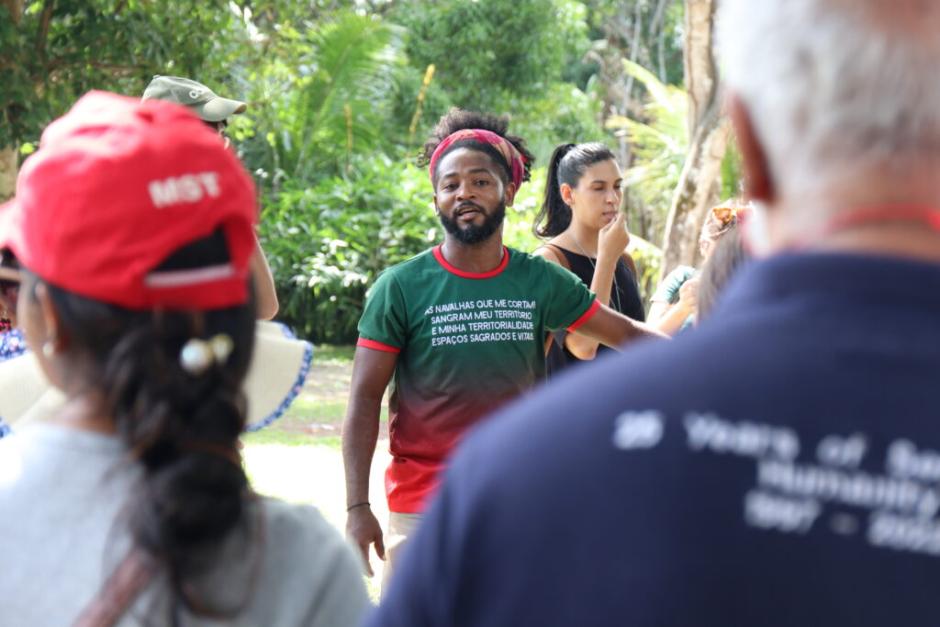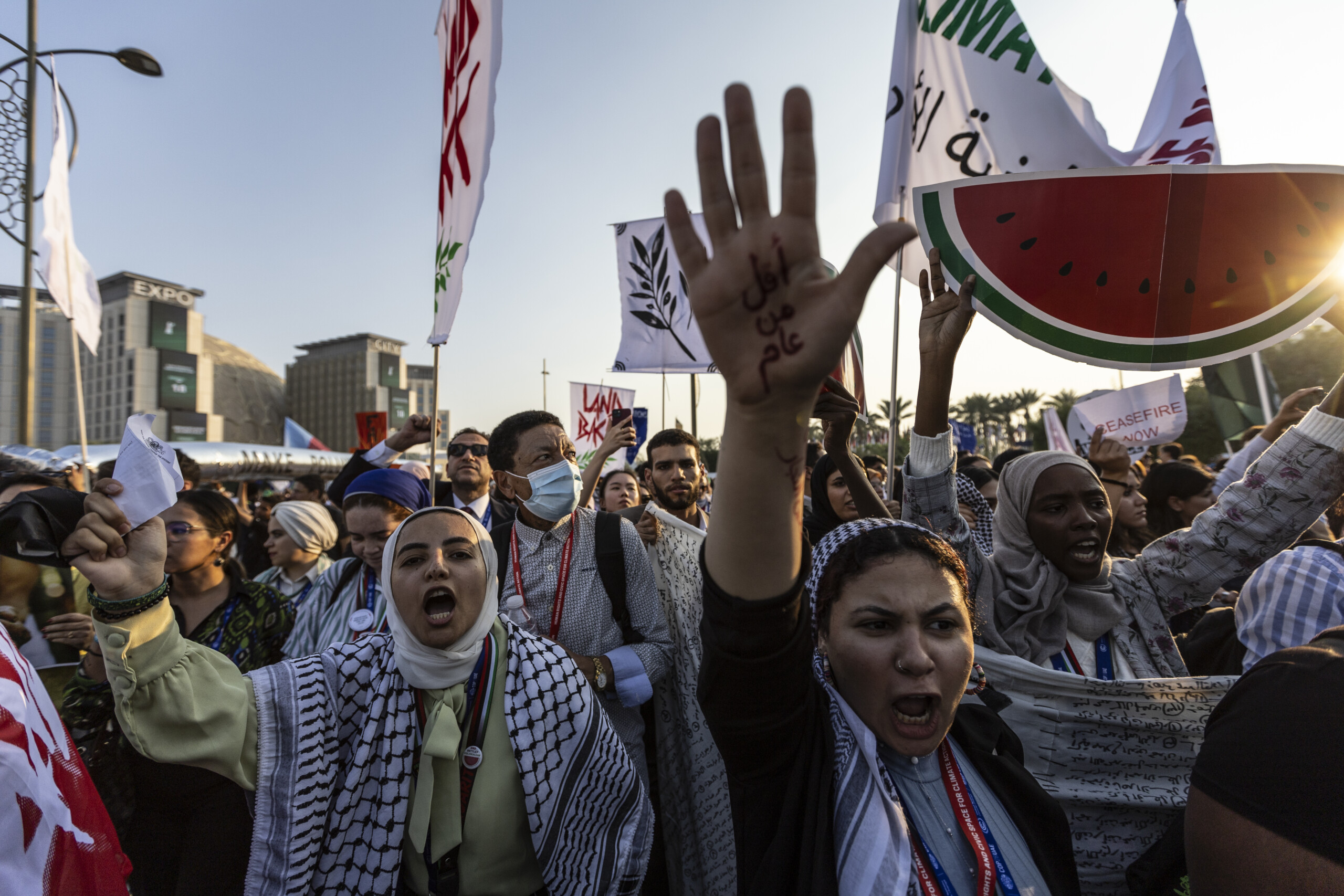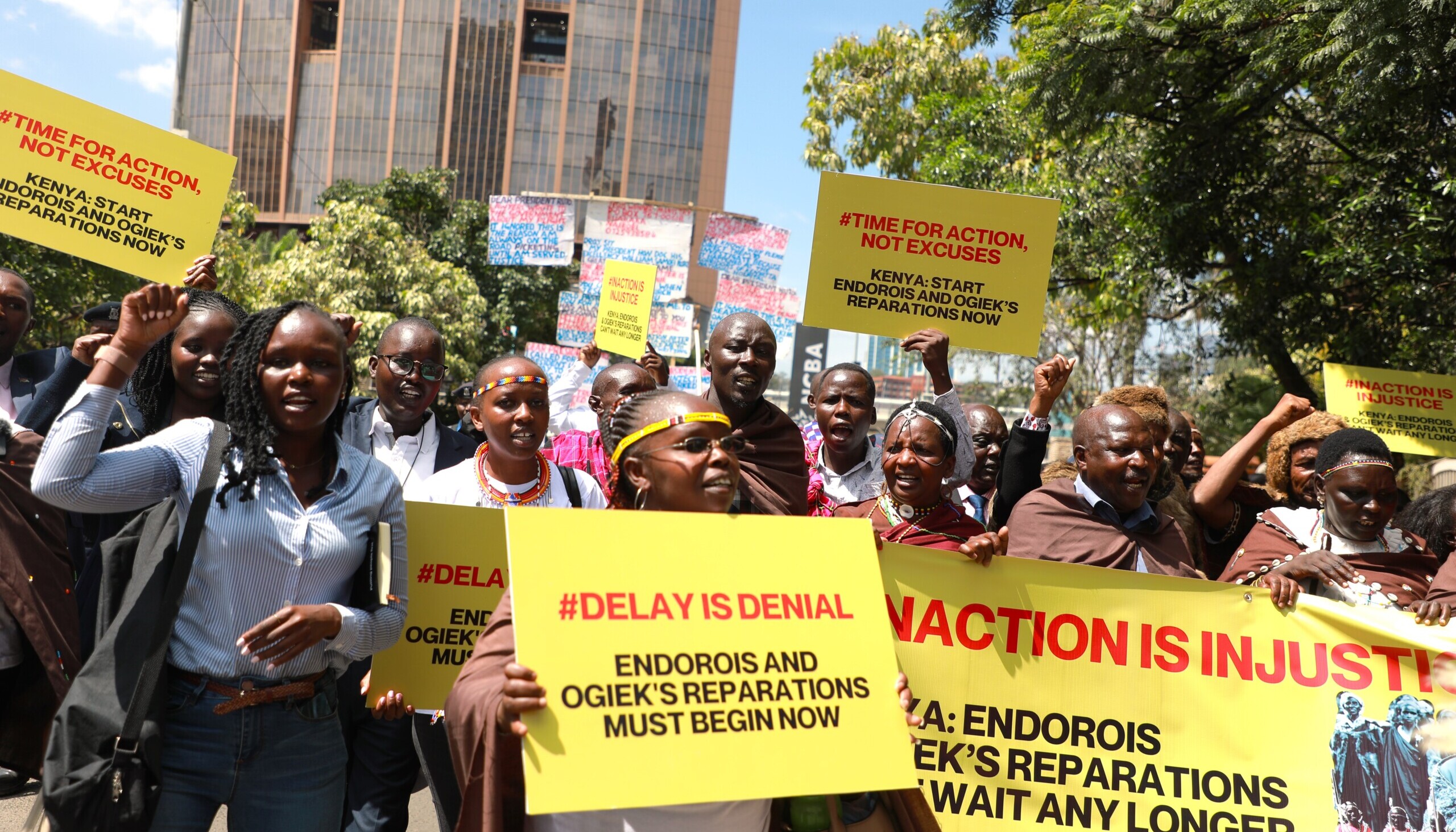At a time when relentless attacks against human rights defenders often face impunity, and the far-right continues to increase its power in Latin America, social movements continue to lead initiatives for justice and rights advocacy.
Last January, we gathered 40 leaders from over 25 social movements across Latin America, the Caribbean, Asia, and Africa for our Regional Meeting of Social Movements in São Luis, Brazil. Justiça Nos Trilhos, a member of the network and a key organization in the fight against the extractivist development model in the state of Maranhão, co-organized the meeting.
ESCR-Net is guided by the principle of centrality in social movements. We value and deeply respect their leadership in the global struggle for economic, social, and environmental justice. Among our priorities is creating spaces where social movements in the network can unite to foster solidarity, share stories of their struggles, and delve into the collective analysis of their obstacles.
In preparation for the upcoming global strategy meeting in September, which will bring together the entire network membership in Thailand, members organized this preparatory meeting in Brazil to analyze the main challenges, deepen the shared analysis of the global conditions they face, and provide a space for exchange.
The conversation focused on Latin America and tackled critical issues like the right to self-determination, alternative economies challenging the neoliberal model, and the defense of territory. As part of the meeting, we visited the Santa Rosa dos Pretos community as part of a solidarity visit led by Justiça Nos Trilhos.
This event continues a series of meetings we started in Durban, South Africa, in January 2023, which brought together key members of the African region’s movement. These events aim to provide a space for social movements to advance in consolidating a common agenda and reflect on the current situation of indigenous, Afro-descendant, workers, and peasant movements, land and territory defense, environmental protection, food sovereignty, the political economy of violence, the right to health and housing, the impact on women’s lives, and the care economy.
Brazil’s experience from the members’ perspective







